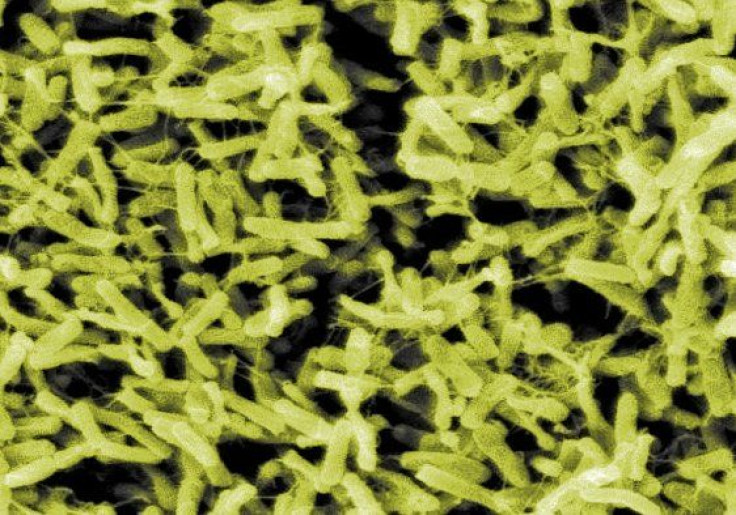C. Diff Treatment: When It Comes to Killing Superbugs, Sometimes The Best Defense Is A Strategic Offense

Researchers have found an unlikely ally in the fight against a deadly superbug called Clostridium difficile: the bacterium itself. A nontoxic version of the bug, also known as C. diff or C-diff, has shown promise in preventing future infections in people recovering from the bacterium. C-diff can cause severe gastrointestinal damage and is one of the leading hospital-acquired infections in the world. Researchers announced their findings this week.
C-diff takes hold when patients undergo a course of antibiotics that kill off all the good bacteria in their systems. A second round of antibiotics is typically used to subdue the offending C-diff bacterium. However, the bug tends to return in many patients. By giving patients infected with C-diff spores of a nontoxic version of C-diff, researchers were able to drastically reduce the chances of the bacterium returning for a second round, according to a new study published Tuesday in the Journal of the American Medical Association.
"What we're doing is establishing competition with the original, toxic strain,” Dr. Dale Gerding of Loyola University Health System in Maywood, Illinois, which led the research, told the BBC. In trials, researchers found that giving patients liquid containing the friendlier C-diff reduced their risk of seeing the infection return from 30 percent to 11 percent. "I'm excited about this and looking forward to a phase-three [larger] trial. We think it'll go a long way to reduce C-diff recurrence,” said Gerding.
The treatment worked because the nontoxic C-diff occupied the spaces in patients’ guts in which the bad C-diff normally thrived, researchers said. This kept the toxic C-diff from finding a foothold.
C-diff infects an estimated half a million Americans every year. Cases of the gut microbe have been steadily rising over the past decade and are responsible for tens of thousands of deaths annually, according to federal health officials.
Two-thirds of C-diff infections were picked up during hospital stays. Health experts pointed to the overprescription of antibiotics as the cause of more C-diff infections. Antibiotics disrupt the balance between the human body’s natural bacteria, allowing bad bacteria to take hold.
Symptoms of C-diff include severe diarrhea and abdominal cramping. In some cases, doctors are forced to remove a patient’s colon because of the damage caused by the bacteria.
© Copyright IBTimes 2024. All rights reserved.












